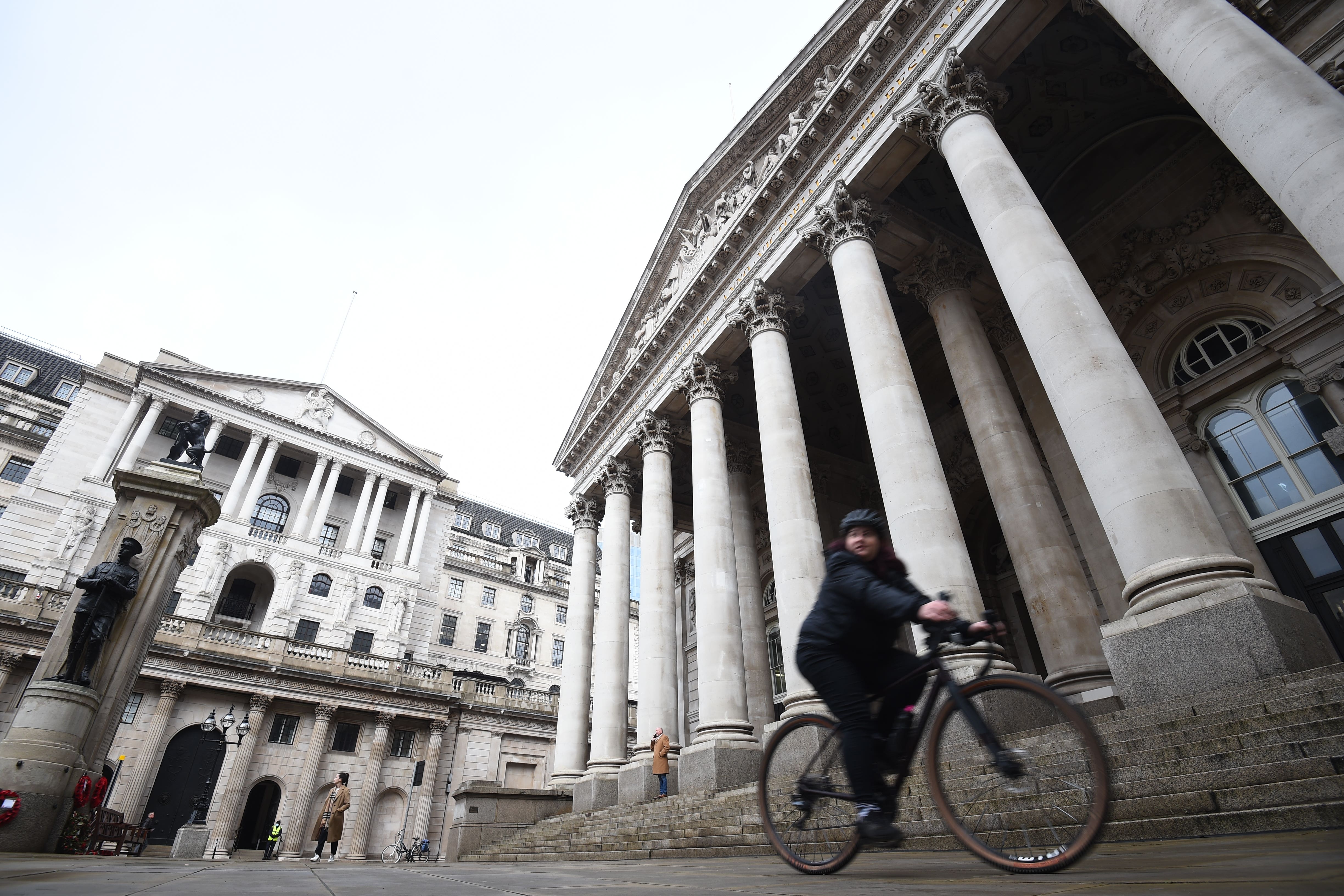Bank of England insists emergency bond plan will end this week despite gilts sell-off
Cost of government borrowing hits highest level since 2008 crash

The Bank of England says its emergency bond-buying scheme to calm markets will end Friday, even as the frantic gilts sell-off continued.
The cost of government borrowing over 10 years briefly surged to its highest level since 2008, as investors demanded higher returns.
It came as the FTSE100 closed at its lowest level in 18 months following grim news including figures from the Office for National Statistics (ONS) that show Britain’s economy unexpectedly shrank in August, putting the country even closer to recession.
The ONS said gross domestic product (GDP) dropped by 0.3 per cent between July and August, down from growth of 0.1 per cent the previous month, which was downwardly revised from the 0.2 per cent previous estimation.
The Bank has been buying government bonds to prevent a sell-off that could put some pension schemes at risk, but Andrew Bailey, the Bank’s governor, told pension funds that there would not be an extension of the temporary support scheme.
The UK 30-year yield on gilts, UK government bonds, hit 5.1 per cent at one stage – its highest level for 20 years, according to Tradeweb. Yields on 10-year gilts also jumped higher, to 4.64 per cent in intraday trading, to reach a fresh 14-year high, before paring back a little.
Gilt yields, which rise as prices fall, have therefore returned close to the levels which led to the Bank’s initial intervention late last month.
Pension funds will have to have find tens of billions of pounds before the end of the week to ensure they have enough cash on hand to withstand market volatility.
Officials stepped in two weeks ago after the chancellor Kwasi Kwarteng’s mini-Budget sent markets into chaos amid concerns over higher borrowing costs.
“As the Bank has made clear from the outset, its temporary and targeted purchases of gilts will end on 14 October,” the Bank said in a statement on Wednesday.
“The governor confirmed this position yesterday, and it has been made absolutely clear in contact with the banks at senior level.”
The Bank had been forced to step in two weeks ago after the yield on gilts soared following Mr Kwarteng’s statement.
Funds in which many pensions invest started to need cash as a result, so had to start selling their gilts. But that fire sale caused prices to fall, which in turn forced them to sell even more.
“This led to a vicious spiral of collateral calls and forced gilt sales that risked leading to further market dysfunction, creating a material risk to UK financial stability,” the Bank’s Financial Policy Committee (FPC) said on Wednesday.
The statement came a day after Mr Bailey spooked the markets.
“My message to the (pension) funds involved – you’ve got three days left now. You have got to get this done,” he said on Tuesday.
“Part of the essence of a financial stability intervention is that it is clearly temporary.”
So far, the Bank has spent nowhere near the £65bn that it had set aside to potentially prop up markets.
But purchases are expected to speed up later this week as the deadline approaches.
On a day of global drops, the FTSE hit its lowest point since March 2021 at one point during the day, and closed at 6,826 – the lowest since April.
The 59-point drop, which shaved 0.9 per cent off the index’s value, came after the Bank of England warned that the proportion of mortgage holders who might face difficulty meeting payments could rise to financial-crisis levels by the end of next year.
Lloyds, the biggest mortgage lender in the country, ended down nearly 6 per cent, while housebuilders Persimmon and Barratt Developments sank by more than 5 per cent each.





